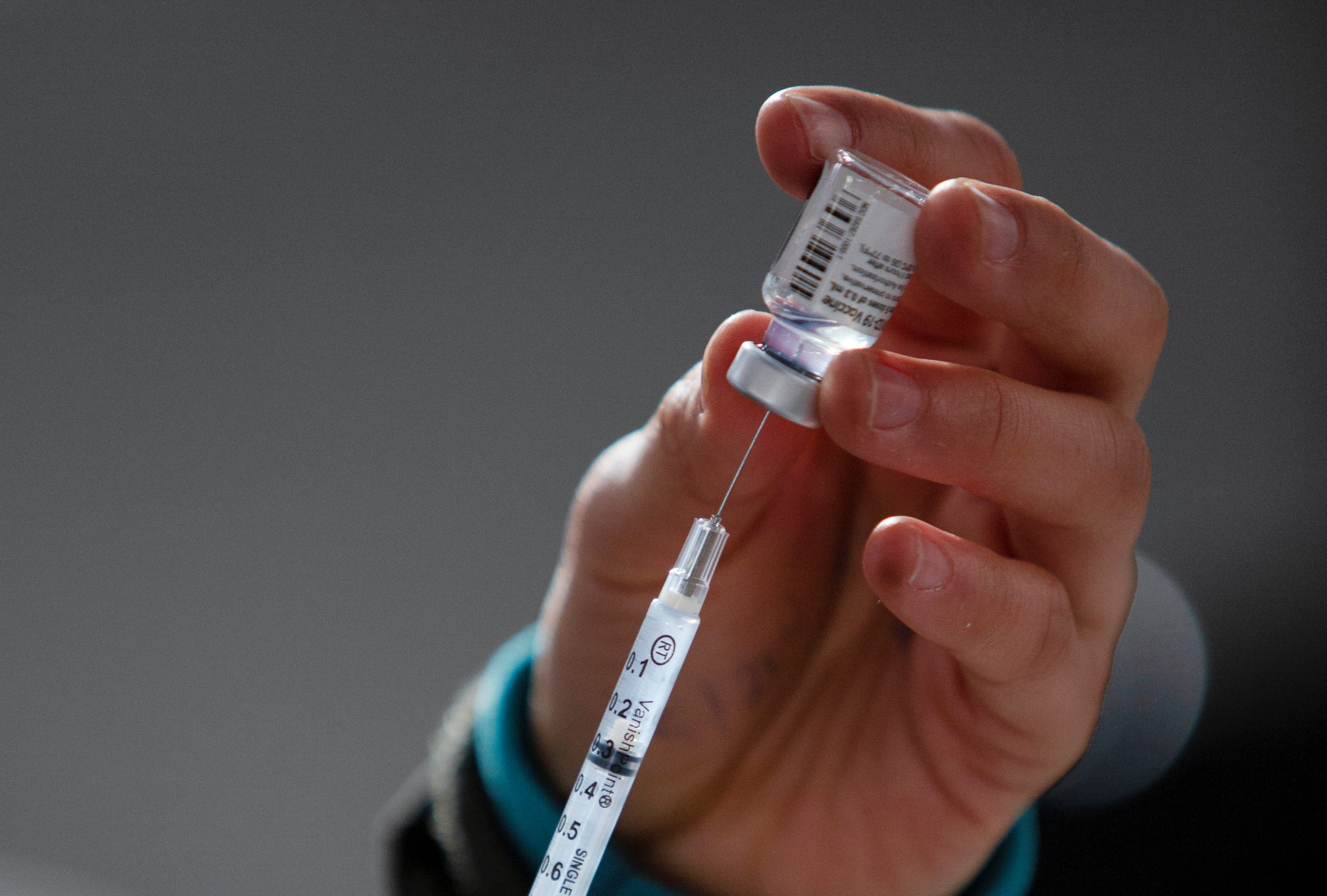The FDA’s Vaccines and Related Biological Products Advisory Committee approved the Pfizer vaccine for children ages 5 to 11 today after about eight hours of discussion.
Six hours into the conversation, one doctor made a comment about how widespread the rollout of the vaccine should be.
He said it is a legitimate question to consider and though this advisory committee was planning to punt the question on to the Advisory Committee on Immunization Practices, it was worth talking about.
“We’re never going to learn about how safe the vaccine is unless we start giving it, and that’s just the way it goes. That’s how we found out about rare complications of other vaccines,” Dr. Eric Rubin said in the meeting.
[firefly_embed]
[/firefly_embed]
The committee voted 17 to 0, with one abstention, in favor of recommending emergency use of the vaccine in young children. The final decision will be made by FDA leaders, most likely in the next few days, NBC News reported.
The one abstention came from Dr. Michael Kurilla, who said he “would have preferred a more nuanced approach,” and not a blanket authorization for the age group, according to Stat.
Another committee member, Dr. Cody Meissner, a pediatrician at Tufts Medical Center, did voice his concern over the possibility of a vaccine mandate for children.
“I am just worried that if we say yes, then the states are going to mandate administration of this vaccine for children to go to school, and I do not agree with that. I think that would be an error at this time,” he said, according to CNN.
Dr. James Hildreth, a temporary committee member, also had concerns due to the number of children who have already had COVID-19, NBC reported. He pointed out some estimated that almost 40 percent of children already had some form of immunity to COVID-19.
“It just seemed to me that in some ways we’re vaccinating children to protect the adults when it should be the other way around. If 30 million children already have some form of immunity, they’ve made their contribution to herd immunity already and our focus should be to get the adults vaccinated to protect the children,” Hildreth said.
Last month, when Pfizer announced that the vaccine was safe for this age demographic, outside experts did say the clinical study did not produce copious amounts of data.
“It’s not a lot to go on, but what we do have to go on looks great,” Kathleen Neuzil of the University of Maryland School of Medicine told Stat last month.
With the passing vote of this advisory committee, though, the process for getting vaccines to 5- to 11-year-olds is underway. If the FDA leaders give their approval, then the U.S. Centers for Disease Control and Prevention’s independent advisory will meet on Nov. 2 and 3 to decide whether to recommend the vaccine for this age group.
The final step will be for CDC director Dr. Rochelle Walensky to sign off on the decision.
Then, the Pfizer COVID-19 vaccine will be available for 5- to 11-year-olds.
This article appeared originally on The Western Journal.

























 Continue with Google
Continue with Google